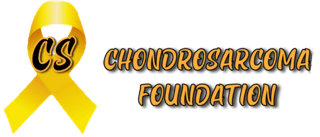National Organization for Rare Disorders is a huge resource for patients with Rare Cancers
NORD Offers Information and Support for Patients of Rare Cancers
November 24, 2014
Peter L. Saltonstall CURE, Winter 2014, Volume 13, Issue 4
NORD was founded in 1983 by parents of children with rare diseases. Over the past 30 years, it has become a powerful advocacy voice for all patients with rare diseases, including cancer.
The Chondrosarcoma Foundation was recently approved as a Gold Member of NORD by the board of Directors.
Through my work with the National Organization for Rare Disorders (NORD), an advocacy and support services group for patients with rare diseases, I meet patients virtually every day. Their stories all have some common elements: the length of time it takes to get an accurate diagnosis, the difficulty in finding reliable information about their disease and the appreciation for meeting and communicating with other patients who share the same experiences. The rare-disease journey is a challenging one for patients and their families and loved ones, but accurate information and contact with knowledgeable people can ease the way a bit.
NORD was founded in 1983 by parents of children with rare diseases. Over the past three decades, the organization has been a powerful advocacy voice for patients, with great success in elevating public understanding of rare diseases and advancing public policies to address the very special needs of patients with rare diseases. At the same time, NORD has developed programs and resources to help patients obtain reliable information about their diseases, and to communicate with others sharing the same journey.
It is essential that patients facing a rare cancer educate themselves. Reliable information is key to obtaining the best care. General Internet searches for rare cancers, however, can result in information that is difficult to understand and sometimes misleading or just plain wrong. Some websites are designed to sell products. It is important to select websites that are known to provide reliable information. This is true in all cases, but especially for health-related websites, because there are so many of them, and the consequences of relying on inaccurate information can be significant.
NORD provides information in non-technical language about some rare cancers in its Rare Disease Database. In addition, some of NORD’s member organizations focus on specific rare cancers and issue reliable information oriented toward the patient. Visit rarediseases.org for more information.
Other good resources for people with newly diagnosed cancer can be found at the American Society of Clinical Oncology’s patient information website (cancer.net), Cancer Research UK (cancerresearchuk. org), the National Cancer Institute (cancer.gov), the Association of Cancer Online Resources (acor.org) and PubMed (ncbi.nlm.nih.gov/pubmed).
Patients facing a rare cancer should try to gather as many relevant articles as they can find, taking note of medical experts and centers that treat their specific condition. Primary care physicians can often help patients contact these medical experts.
Other patients can provide support and help those with newly diagnosed disease feel less isolated. There are a number of ways that patients can connect online with others who have the same or a similar diagnosis. Good points of contact for online connections with patients who have rare cancers include the Rarer Cancers Foundation (rarercancers.org) and the Rare Cancer Alliance (rare-cancer.org).
Looking to the future, it is clear that we must sustain and build on the progress already made. Every day, we are learning more and more about rare diseases generally and rare cancers specifically. Medical progress during our lifetimes has been remarkable. Now we need to capture that new information and translate it into better diagnostic techniques and better treatments. And we need to increase the ability of our health care professionals to diagnose rare diseases more quickly, so that treatment can be initiated earlier in the disease progression.
—Peter L. Saltonstall is NORD’s president and chief executive officer.
For more information: NORD Offers Information and Support for Patients of Rare Cancers (curetoday.com)
